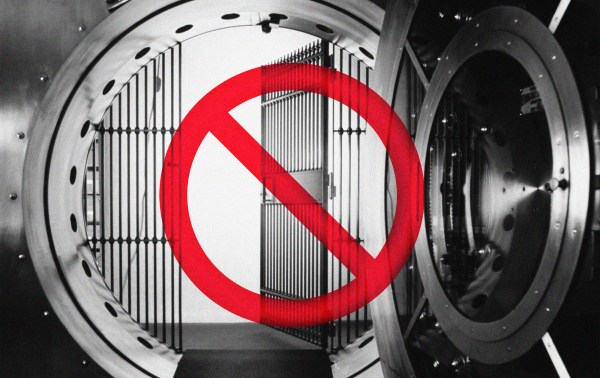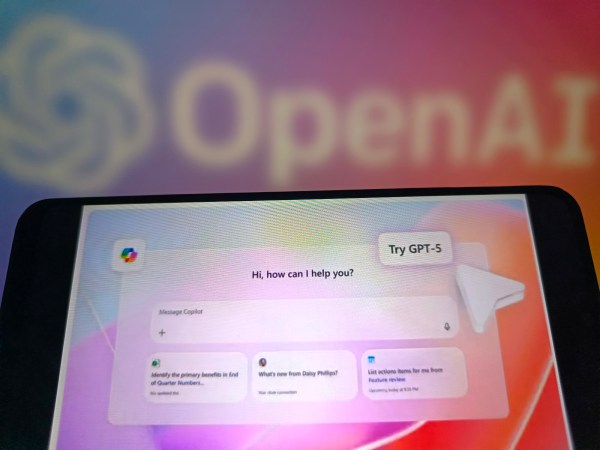“Our GPUs are melting,” Sam Altman, CEO of OpenAI tweeted just days after the company released its news image generator o the public. He was celebrating the high demand for the product, and he later announced the company was discussing building its own data center.
The world is learning in real time that AI is a transformational technology that brings with it new needs, particularly when it comes to U.S. infrastructure and our electrical grid. Unfortunately for Altman, America might not be producing enough electricians to build and service the data centers that power AI.
BlackRock CEO Larry Fink says he has “told the members of the Trump team that we’re going to run out of electricians as we build out AI data centers. We just don’t have enough.” These centers are a critical part of building America’s leadership in AI—and it’s not just about reimagining the cast of Friends as babies or creating images of Hank Hill as he might really exist. Artificial intelligence has the potential to improve medical research and health care, help businesses increase productivity and save all types of workers countless hours on repetitive tasks.
That makes the need for more electricians all the more acute. Politicians may look to subsidize more trade school capacity to train electricians, but there are simpler and more effective ways to address this need. Like many professions, electricians are overregulated—and many of those regulations do little to protect consumers. Modest licensing reforms can ensure that AI data centers have the personnel they need. But until reforms are implemented, we can’t know how big the market for electricians is, and the effect of any subsidies would be held back by these constraints.
Occupational licensing is handled in patchwork fashion in this country: Twenty states do not license electricians. In some states, licensing is handled at the local level—and some localities, such as Warwick Township in Pennsylvania, opt not to license them. Assuming licensure improves safety, we should expect to see less harm in states with broader licensing requirements and more harm in states where localities can—but don’t always—opt for licensure. One study exploring those correlations and using data from the Bureau of Labor Statistics (BLS) showed no real difference in fatal incident rates between states that licensed electricians and those that didn’t. Indeed, another study also found that excessive requirements for licensure restrict the supply of electricians and increase electrocutions because people then try their hand at the practice at home. (There’s a reason even HGTV shows repeatedly warn homeowners to never attempt electrical work on their own!)
The occupational licensing process for electricians comes in many forms, but often includes schooling, thousands of hours or multiple years of experience, a professional exam, and a few hundred dollars in fees. Barron’s reports that BLS “has estimated the U.S. will need 11 percent more electricians by 2033 than it had in 2023, nearly triple the growth rate for other professions.” Currently, the profession is only growing at a rate of 6 percent.
Per Barron’s: “A growing cadre of well-paid ‘traveling electricians’ have been specializing in data center work in recent years, going from site to site to set up operations.” A key problem here is license mobility which, for electricians, can be a particular nightmare. Electricians licensed in one state or city can’t just move—or even travel for temporary work—elsewhere, as many states lack a process for allowing occupational licenses to be recognized across state lines. In states that delegate licensing to localities, some electricians have to choose between paying for many city-level licenses or working less. Even when states have passed well-thought-out universal licensing recognition laws that enable license mobility, those laws create problems for electricians who move to or from a state like Pennsylvania that lacks statewide occupational licensing for the profession.
Consider Oklahoma’s law, which applies only to someone “licensed or certified by another state”—not a “city” or “locality.” Similarly, it requires that the “other state verifies” the training or credential. So a locally licensed Pennsylvania electrician would not be eligible and would have to go through the whole licensing process again if he or she moved to Oklahoma. The law also requires that the applicant’s “out-of-state state license or certification is and has been maintained in good standing in all states in which the person holds a license or certification for at least one (1) year before making application to Oklahoma.”
The intent of the law seems to focus on the “good standing” aspect—that the licensee should not have been suspended or revoked. But the requirement that this is done for at least “one year” in “all states” in which they are licensed could be read to mean that an electrician working for two months in, say, Missouri, after having worked five years in Alaska could not benefit from universal licensing recognition in Oklahoma because one of the licenses was only maintained for two months.
This is not to pick on Oklahoma—the state’s law is short and clear, especially when compared to other similar laws. But occupational licensing can be a blunt instrument that even at its best fails to account for the many possible paths people take. However, a few simple word changes in state laws such as Oklahoma’s would benefit locally licensed electricians and add regulatory certainty for short-term traveling electricians, or other traveling professionals.
Finally, some states limit the benefits of license recognition to new residents (not visitors) of the state or don’t account for instances in which another state has no license for the profession whatsoever. The more limiting universal recognition is, the harder it will be for traveling electricians to practice.
Any training and licensing for electricians should be focused on the proven ability to reduce harm, not a false sense of security. Also, making small changes to universal licensing recognition laws—or even enacting them in the first place—will enable AI data centers to have access to the electricians they need. Further interventions may be necessary to increase the number of electricians who can benefit from this new work, but removing unnecessary barriers is a great place to start. In this case, occupational licensing reform is critical to America’s future and leadership in the AI race.






Please note that we at The Dispatch hold ourselves, our work, and our commenters to a higher standard than other places on the internet. We welcome comments that foster genuine debate or discussion—including comments critical of us or our work—but responses that include ad hominem attacks on fellow Dispatch members or are intended to stoke fear and anger may be moderated.
With your membership, you only have the ability to comment on The Morning Dispatch articles. Consider upgrading to join the conversation everywhere.